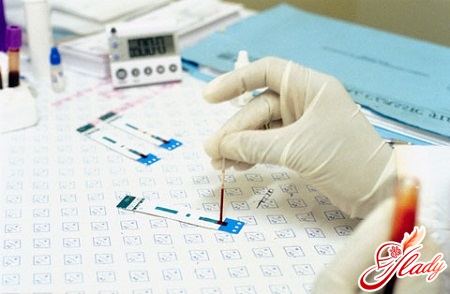 That the destination of any woman is birthchild, is conditioned by nature itself. However, unfortunately, life sometimes makes its own adjustments, as a result of which a woman faces a variety of problems related to both conception and the successful course of pregnancy. Often, a woman is unable to independently, without medical intervention and the help of doctors, not only to become pregnant, but also to bear and give birth to her child. Doctors - gynecologists, however sad it is, often face such a phenomenon as miscarriages. Miscarriage is a huge tragedy for a woman and her entire family, especially if the pregnancy was welcome. Unfounded parents most often fall into despair, mistakenly believing that to remain childless is their cross. For them, the most urgent question - how to get pregnant after a miscarriage? However, this view of the problem of miscarriage is fundamentally wrong. Miscarriage, of course, is a huge misfortune, but do not assume that the birth of a child is impossible for you, because one or two times you had a spontaneous abortion. Although, of course, miscarriage is an extremely alarming signal that there are some problems in the body of parents - most often mothers -. Miscarriage is the reason for immediate medical attention. In order to avoid a repetition of the tragedy in the future, it is very important to establish the factor that triggered the spontaneous termination of pregnancy. To do this, often one gynecologist's consultation is not enough - in the search for the reasons for the miscarriage, it may be necessary to consult specialists such as endocrinologist, geneticist and others. This article briefly examined the question of whether it is possible to become pregnant after a miscarriage. In order to understand the reasons that cause miscarriage and prevent a woman from becoming pregnant again, you need to understand what the spontaneous termination of pregnancy is.
That the destination of any woman is birthchild, is conditioned by nature itself. However, unfortunately, life sometimes makes its own adjustments, as a result of which a woman faces a variety of problems related to both conception and the successful course of pregnancy. Often, a woman is unable to independently, without medical intervention and the help of doctors, not only to become pregnant, but also to bear and give birth to her child. Doctors - gynecologists, however sad it is, often face such a phenomenon as miscarriages. Miscarriage is a huge tragedy for a woman and her entire family, especially if the pregnancy was welcome. Unfounded parents most often fall into despair, mistakenly believing that to remain childless is their cross. For them, the most urgent question - how to get pregnant after a miscarriage? However, this view of the problem of miscarriage is fundamentally wrong. Miscarriage, of course, is a huge misfortune, but do not assume that the birth of a child is impossible for you, because one or two times you had a spontaneous abortion. Although, of course, miscarriage is an extremely alarming signal that there are some problems in the body of parents - most often mothers -. Miscarriage is the reason for immediate medical attention. In order to avoid a repetition of the tragedy in the future, it is very important to establish the factor that triggered the spontaneous termination of pregnancy. To do this, often one gynecologist's consultation is not enough - in the search for the reasons for the miscarriage, it may be necessary to consult specialists such as endocrinologist, geneticist and others. This article briefly examined the question of whether it is possible to become pregnant after a miscarriage. In order to understand the reasons that cause miscarriage and prevent a woman from becoming pregnant again, you need to understand what the spontaneous termination of pregnancy is.
What is a miscarriage?
The word "miscarriage" is on hearing in all women,especially in pregnant women. After all, any woman expecting the birth of a child becomes particularly sensitive and sensitive to any negative information. This is explained very simply - a pregnant woman is very worried about her future baby. And, in addition, a similar state of anxiety is largely promoted by the altered hormonal background of a pregnant woman. Miscarriage is the spontaneous termination of pregnancy at certain times - up to 28 weeks. Miscarriage is a fairly widespread phenomenon - according to statistics, out of 10 women at least three at least once in their life have experienced miscarriage. And it should be noted one more fact - this statistics is true only for those cases of spontaneous abortion, which were recorded in medical institutions. In fact, cases of spontaneous abortion are much greater than what is known to medical workers. Moreover - even women themselves do not always guess that they were pregnant and this pregnancy was spontaneously interrupted for some reason. In fact, provided that the woman has a regular sex life, while not taking any measures to protect against the onset of pregnancy, about 80% of cases, the fertilization of the egg still occurs. However, the fetal egg reaches the uterine cavity in no more than 30% of cases. And even implant in the mucous membrane of the uterus can still have fewer fetal eggs. And only a few of them manage to continue their further development without dying in the first few days after implantation into the uterine cavity. And only a week later - one and a half women begin to show the first signs of pregnancy. But in this case, alas, the pregnancy remains under the threat of spontaneous interruption. Gynecologists say that in about 25% of cases, diagnosed pregnancies are interrupted for a variety of reasons. Approximately after the eighth week of pregnancy the risk of spontaneous interruption is reduced by 50%. Further, this probability decreases in direct proportion to how the gestation period increases. All miscarriages are divided into two main subgroups:
- Early miscarriages.
The early miscarriages are those casesspontaneous abortion, which occur in the early stages of pregnancy - up to about 16 weeks. As a rule, the cause of such miscarriages can be established extremely rarely - most often the cause remains not fully understood or unclear at all.
- Late miscarriages.
Late miscarriages are those casesspontaneous termination of pregnancy, which occur after the 16th week of pregnancy. The cause of this miscarriage is much easier to establish than the termination of pregnancy in the early stages. Most often, late miscarriages occur if there was a trauma in a pregnant woman or the fetus had any genetic disorders. In medicine there is such a thing as the usual miscarriages. At least one woman has heard of this definition at least once, but few know exactly what it means. Many mistakenly believe that any miscarriage that has occurred not for the first time is customary. However, this is not entirely true - in fact, a habitual miscarriage, or habitual miscarriage, gynecologists call the second and all subsequent miscarriages, provided that they occurred one after another, not alternating with successful pregnancies and the birth of a child.
The causes of miscarriage - who is to blame?
Despite the fact that all women know thata certain risk of spontaneous abortion exists for every pregnant woman, without exception, facing this disaster personally, again and again asking the question - who is to blame for what happened? In fact, most often, in the spontaneous termination of pregnancy, no one is to blame. As is known, when the egg is fertilized, the genetic information to the child is transmitted in equal parts - half from the father, and the second half from the mother. At the very moment when the sperm penetrates into the egg, an absolutely unique cell that has its own set of chromosomes is formed. The formation of these new cells is very complex and in its process there can be a variety of genetic failures, for example, the loss of certain sections of genes. As a result, the fetus loses its vitality and ability to fertilize. From what genes will be lost, depends on the fact, at what time this pregnancy will be interrupted. In the event that the genes that are necessary for the fetus at an early stage of development are affected, the pregnancy is interrupted at the very beginning. If these genes are needed later, then the pregnancy can develop for some time absolutely safely before it is interrupted. As a rule, genetic defects are the main culprits of most cases of spontaneous abortion. Prevent such abortions of pregnancy is almost impossible - such random genetic failures can not be predicted. In this case, parents can only accept and try to get pregnant again - as a rule, subsequent pregnancies have a favorable outcome. However, there are also other reasons for spontaneous abortion, which modern medicine can well prevent. The most common causes of miscarriages are as follows:
- Hormonal disorders.
As you know, in order for pregnancyhas developed properly, the female hormonal background should change, thus creating conditions favorable for the fetus. However, if the hormonal background for some reason has not changed, or has changed not as necessary, the normal course of pregnancy and the proper development of the fetus are in jeopardy. In the event that the existing problem will be detected by the doctors at the very beginning, the situation can be taken under control and quickly normalized the situation. But if the problem is not noticed or, worse, simply ignored - both by doctors and by the woman herself, there is a very high probability of spontaneous abortion.
- Development of a woman with ischemic-cervical insufficiency.
Such a violation is characterizedpremature opening of the cervix. The weakened cervix of the uterus gradually opens and is no longer able to retain a growing fetus in the uterine cavity. As a result, the pregnancy is spontaneously interrupted. However, if this problem is noticed by a doctor in a timely manner, he will take the necessary measures to help keep the pregnancy. As a rule, the doctor applies a special uterine ring or seams on the cervix, which do not allow the cervix to open. These devices are removed on the eve of the expected date of delivery.
- Infection of a woman with various infectious diseases.
Almost any infection on a short termpregnancy can lead to its spontaneous interruption. So, for example, even a banal cold can provoke a miscarriage. That is why a pregnant woman or just going to conceive a child should take special care of her health - to strengthen the immune system, to avoid places of mass congestion.
- Possible malformations of the uterus or ovarian tumor.
In some cases, for example, with a small ordouble-breasted uterus, successful pregnancy is possible only under the condition of special maintenance therapy and strictly medical control. The same applies not only to the uterus, but also possible ovarian tumors. Incidentally, if a miscarriage occurred for this reason, the woman should later, planning the next pregnancy, regularly visit a doctor - after the treatment the doctor will tell the woman how many months it is possible to become pregnant.
- Functional diseases of vital body systems.
Spontaneous termination of pregnancy is possiblealso in the event that the future mother suffers from any chronic diseases - especially the cardiovascular system. In such a case, the woman should also be under the control of doctors.
- The effect of toxic substances.
In the event that the body is pregnantwomen, and therefore, on the fetus, are exposed to poisonous substances such as nicotine, alcohol, drugs, lacquers, paints, acetone, possibly a violation of the development of the fetus and the spontaneous termination of pregnancy.
- Nervous shocks
Serious stress can also become deadly for a favorable course of pregnancy.
- The case of an abortion in the past.
Information that precedes pregnancyabortion significantly increases the risk of miscarriage, is known to all. Especially abortion is dangerous in the event that the first pregnancy in a woman's life was interrupted. For successful conception of the child and a successful outcome of pregnancy after a previous miscarriage, parents realized the fact that miscarriage is not a sign that they are not capable of giving birth to a child. Single miscarriages only indicate that a malfunction has occurred in the body of the parents and it is necessary to consult a doctor in order to find out the problem and eliminate it. As a rule, doctors - gynecologists in each specific case for certain know, whether it is possible to become pregnant after a miscarriage.
How to become pregnant after a miscarriage?
Of course, spontaneous interruptionpregnancy is a huge tragedy for any family. Each family reacts to this grief in its own way - someone tries to become pregnant as soon as possible, and someone, on the contrary, for a very long time does not risk becoming pregnant again, panically fearing a repeated spontaneous interruption. It is impossible to say unequivocally which of them is right and who is wrong. In the event that the parents do not have any diseases that threaten the favorable outcome of pregnancy, the period for the re-pregnancy should be determined only by their moral readiness. If a woman becomes pregnant immediately after a miscarriage, she should be under close supervision of the gynecologist from the very beginning of pregnancy and until the very birth. However, doctors - gynecologists still recommend observing some rules. Listed below are the main ones:
- If you are able to survive morally sometime, you should not get pregnant before six months after the miscarriage. Unfortunately, pregnancy, which occurred at an earlier time, has a higher probability of spontaneous termination. When you can get pregnant after a miscarriage - you also tell a doctor - a gynecologist.
- Be sure to complete the most complete examination with the necessary specialists.
- In the event that you have health problems, before pregnancy, eliminate them so that the miscarriage does not happen again.
- Be sure to follow all the recommendations of yourdoctor - gynecologist, who will help you to choose the optimal period for conception. In addition, remember that you can get pregnant after taking contraceptives only if they are matched correctly.
Thus, from all the abovethe readers have already realized that the answer to the question of whether it is possible to become pregnant after a miscarriage is positive. But in order for your baby to be born, you must do your best. Perhaps you feel that the mental state you experience after a miscarriage, nor how can not recover. You notice yourself depressing thoughts about what happened, try not to close inside yourself. Maybe you can just talk with a person who understands and supports you, not only with words, but with deeds, if that does not help you, contact a professional, it can be either a psychologist or a psychotherapist who came across and know how to properly overcome such problems. Experiences present now, necessarily affect the baby in a subsequent pregnancy, a sense of fear can prevent you, enjoy the happy months. Try to overcome it. It can happen that for the birth of a healthy baby, you need to change the whole life of life. It may be necessary to change or stop work if it is intense or heavy. The doctor can prescribe you multivitamins. Often in such cases it is required to do special gymnastics. In the event that your weight exceeds the norms, deal with its normalization. And, of course, forget about bad habits. More information you can get . And remember the main thing - if you really want something, it's sure to happen! We advise you to read:









